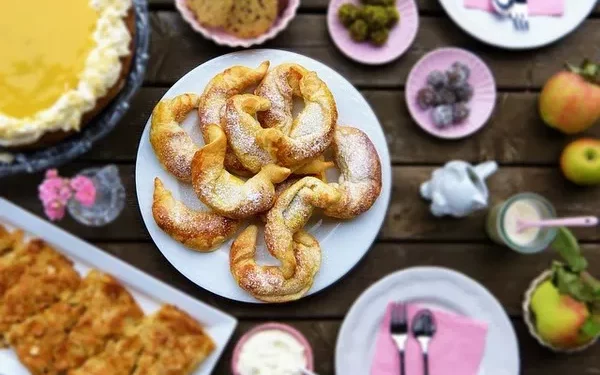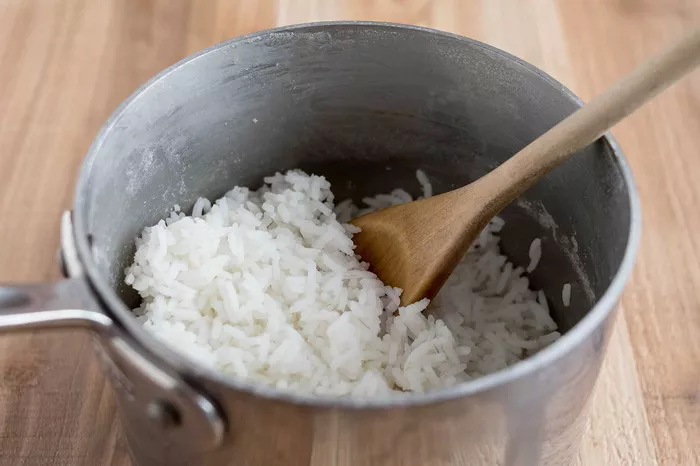Managing blood sugar is a critical aspect of diabetes care. For individuals living with diabetes, making informed choices about what to eat plays a significant role in regulating glucose levels and maintaining overall health. While there is an abundance of guidance on what foods are beneficial for blood sugar management, it’s equally important to understand which foods can contribute to unhealthy spikes in blood sugar.
This article will explore which foods to avoid in order to better manage blood sugar levels, improve insulin sensitivity, and reduce the risk of diabetes-related complications. By the end of this guide, you will have a clear understanding of foods that can be problematic for those trying to keep their blood sugar under control.
The Basics of Blood Sugar Regulation
Before diving into the specifics of food choices, it’s important to understand how blood sugar regulation works. After we eat, food is broken down into glucose (sugar), which enters the bloodstream. The body then uses insulin, a hormone produced by the pancreas, to help cells absorb glucose for energy. However, in individuals with diabetes, insulin production or sensitivity may be impaired, leading to higher than normal blood sugar levels.
For people with diabetes, both the quantity and type of carbohydrates consumed are critical in determining how quickly glucose enters the bloodstream. Additionally, fats, proteins, and fiber can impact how efficiently the body uses glucose, influencing overall blood sugar control.
Foods to Avoid for Blood Sugar Control
While every individual’s response to food may vary, there are certain categories of food that commonly cause blood sugar spikes or hinder blood sugar regulation. These include refined carbohydrates, sugary beverages, high-fat processed foods, and certain alcohols. Let’s take a closer look at each category and the specific foods that should be minimized or avoided.
1. Refined Carbohydrates and Processed Grains
Refined carbohydrates and processed grains are often a major contributor to elevated blood sugar levels. These foods have undergone processing that removes most of their fiber content, which slows down the absorption of sugar. The absence of fiber means glucose is absorbed quickly into the bloodstream, leading to rapid increases in blood sugar.
Common Examples:
White bread and pastries: These are made from refined flour, which is quickly broken down into glucose in the body.
White rice: Like white bread, white rice is stripped of its fiber and can lead to quick spikes in blood sugar.
Sugary breakfast cereals: Many cereals, especially those marketed to children, are high in sugar and low in fiber.
Crackers and snack foods: Processed snack foods often contain refined flour, sugar, and unhealthy fats, all of which can raise blood sugar.
Refined carbohydrates cause a sharp insulin response, which can ultimately worsen insulin resistance in people with diabetes. A better alternative is to replace refined grains with whole grains, such as whole wheat bread, quinoa, brown rice, and oats. These options are higher in fiber and have a more gradual effect on blood sugar.
2. Sugary Beverages
Sugary drinks are one of the most detrimental food items when it comes to blood sugar control. Unlike solid foods, beverages are quickly absorbed into the bloodstream and provide a rapid source of glucose. These drinks provide little to no nutritional value but are loaded with simple sugars that can significantly raise blood sugar levels.
Common Examples:
Soda (regular soft drinks): Even “diet” sodas may contain artificial sweeteners that can have other negative effects, though they don’t raise blood sugar directly.
Sweetened fruit juices: Fruit juices, while natural, contain high concentrations of sugar without the fiber found in whole fruit.
Energy drinks and sweetened iced tea: Many energy drinks are packed with sugar and caffeine, both of which can cause blood sugar fluctuations.
One study found that individuals who consumed sugary drinks regularly had a higher risk of developing insulin resistance and type 2 diabetes. To manage blood sugar effectively, it is best to avoid sugary drinks altogether and replace them with water, unsweetened tea, or sparkling water.
3. High-Fat Processed Foods
While fats are an essential part of the diet, not all fats are created equal. The consumption of high-fat processed foods can lead to increased insulin resistance, which makes it harder for the body to regulate blood sugar. In particular, trans fats and saturated fats are the worst offenders.
Common Examples:
Fried foods: French fries, fried chicken, and other deep-fried foods are high in unhealthy fats that promote inflammation and insulin resistance.
Processed meats: Bacon, sausages, hot dogs, and deli meats are high in saturated fats and sodium, which can contribute to heart disease and worsen blood sugar control.
Baked goods: Many packaged cookies, cakes, and pastries are made with trans fats and refined sugars, which can have a compounded negative effect on blood sugar.
High-fat processed foods can also contribute to weight gain, which can worsen diabetes control. It’s important to choose healthy fats, such as those from avocados, nuts, seeds, and olive oil, as these fats can actually help improve insulin sensitivity.
4. Sweets and Desserts
Sweets and desserts are an obvious source of sugar, and they should be consumed with caution, especially for individuals with diabetes. These foods not only cause rapid increases in blood sugar, but they can also contribute to weight gain, which further complicates diabetes management. Many sugary treats are also high in refined carbs and unhealthy fats, which compound the effects on blood sugar.
Common Examples:
Candy bars, chocolate, and gummies: These products are often made with refined sugars and offer little nutritional value.
Ice cream and sweetened frozen desserts: High in sugar and fat, these treats can lead to sharp glucose spikes.
Pastries and doughnuts: Like other baked goods, these treats are typically made with refined flour, sugar, and unhealthy fats, making them particularly detrimental to blood sugar control.
Instead of reaching for sugary snacks, consider alternatives like fresh fruit or small servings of dark chocolate (at least 70% cocoa), which are lower in sugar and may have a lower glycemic impact.
5. Alcoholic Beverages (When Consumed in Excess)
While moderate alcohol consumption may not have a significant impact on blood sugar levels, excessive drinking can lead to a variety of health issues, including poor blood sugar control. Alcohol affects the liver’s ability to release glucose into the bloodstream, which can lead to low blood sugar (hypoglycemia) after drinking, particularly when consumed without food.
Common Examples:
Beer: Beer, particularly regular beer, contains carbohydrates that can raise blood sugar levels.
Sweetened cocktails: Many cocktails, such as margaritas and piña coladas, are loaded with sugary mixers and can cause rapid blood sugar spikes.
Wine (in excess): While dry wine has a relatively low carbohydrate content, drinking wine in large amounts can still cause fluctuations in blood sugar.
If you choose to drink, moderation is key. Opt for light beer or dry wine, and avoid sugary cocktails. Always pair alcohol with food to minimize blood sugar fluctuations.
6. Highly Processed Convenience Foods
Many convenience foods, such as packaged snacks, ready-made meals, and fast food, are loaded with refined carbohydrates, unhealthy fats, and excessive sodium. These foods are often low in fiber and can cause blood sugar to rise quickly.
Common Examples:
Microwaveable dinners and frozen meals: These often contain refined grains, added sugars, and preservatives, all of which are problematic for blood sugar regulation.
Pre-packaged snacks: Chips, crackers, and snack cakes are typically high in refined flour, unhealthy fats, and artificial ingredients.
Fast food: Most fast food options are high in unhealthy fats, refined carbs, and sodium, making them poor choices for people with diabetes.
Instead of relying on pre-packaged meals, try preparing homemade meals with fresh, whole ingredients. This allows you to control what goes into your food and ensures better blood sugar management.
7. High-Sodium Foods
While sodium itself does not directly raise blood sugar levels, excessive sodium intake can contribute to high blood pressure and increase the risk of cardiovascular disease, which is already elevated in people with diabetes. In addition, high-sodium diets can impair kidney function, which is a concern for those with diabetic nephropathy.
Common Examples:
Salty snacks: Chips, pretzels, and packaged nuts are often high in sodium.
Canned soups and vegetables: Many canned products contain high levels of sodium to enhance preservation and flavor.
Processed meats: Deli meats, hot dogs, and bacon are often preserved with high levels of salt.
To reduce sodium intake, opt for fresh, unprocessed foods, and use herbs and spices for seasoning instead of salt.
Conclusion:
For individuals living with diabetes, blood sugar control is essential to managing the condition and preventing complications. Avoiding or minimizing the intake of foods that cause rapid blood sugar spikes can help improve overall glucose management. These foods include refined carbohydrates, sugary drinks, high-fat processed foods, sweets, excessive alcohol, and high-sodium foods.
By replacing these harmful foods with healthier alternatives—such as whole grains, vegetables, lean proteins, and healthy fats—you can improve your insulin sensitivity, maintain better blood sugar levels, and reduce the risk of long-term complications. Always work with your healthcare team to personalize your diet plan based on your individual needs and health goals.
Related topics:
What Fruits Can You Eat When You Have Diabetes?



























